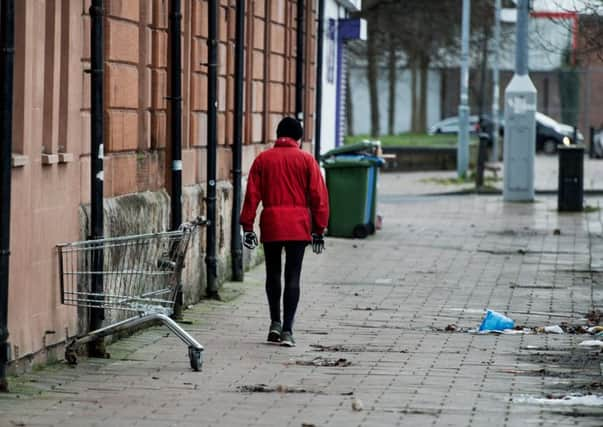Debt charity warning as ‘too many people are labelled vulnerable’


A debt charity has warned that people in real poverty are not getting the help they need because too many people are being “labelled as vulnerable”.
A report, Stacked Against, from debt charity Christians Against Poverty (CAP), claimed that by lowering the bar to help more customers, those who are truly desperate are getting overlooked.
Advertisement
Hide AdAdvertisement
Hide AdThe study said utility companies would regard all households with a child under five as being “vulnerable” which was “a world away” from someone who is, for example in poor mental health with a terminal illness.
Emma Jackson, head of CAP Scotland, said: “It really is great that companies have heeded our message to help vulnerable clients, but by lowering the bar to the extent they have, we are finding the most critically in need hidden in the crowd.
“For instance, some utility companies would regard all households with a child under five as vulnerable which, in many cases, will be a world away from someone in poor mental health with a terminal illness who has learning difficulties and is haunted by childhood trauma.”
She added: “The reality is, the most vulnerable people are suffering in multiple ways and the challenge for customer-facing teams – whether that be in public sector or a commercial setting – is to recognise them and have appropriately-trained teams with the compassion and time to truly help.”
The charity’s report researched the links between 14 different additional difficulties faced by their debt clients. They included caring for a loved one, unemployment, childhood trauma and lone parenting. It found that nearly seven in ten are facing two or more issues and half are living with three or more issues.
Unemployment rarely seems to be experienced in isolation – three in five also have poor mental health and a quarter are caring for a loved one. According to the report, unemployed people are also more likely to have a physical disability or serious illness.
It claimed that the greater number of separate issues suffered simultaneously, the increasingly fragile their situation becomes and the greater chance that they will consider suicide as an option.
Seven in ten of those with just one stated vulnerability admitted they had skipped meals due to their debt problems. Meanwhile, more than half of those with five or more vulnerabilities said they had felt like ending their lives before accessing help and support.